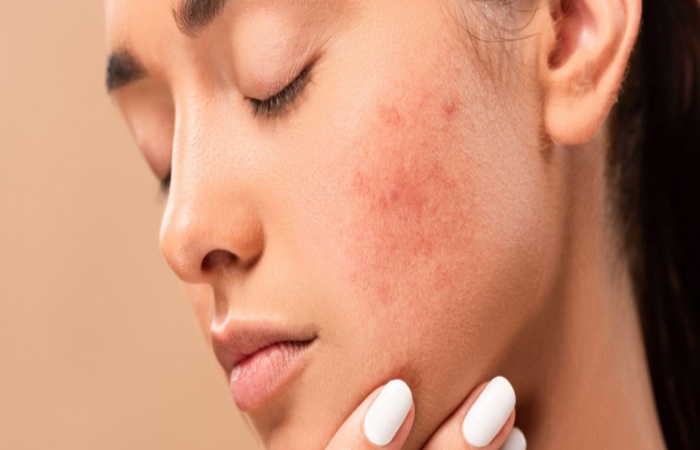Introduction
Acne is a very common skin condition that arises when hair follicles in the skin become clogged. Sebum is the oil that helps prevent skin dryness, and dead skin cells clog pores, causing breaks, commonly called pimples or zits. Breakouts often occur on the face but can also seem on the back, chest, and shoulders.
It is an inflammatory disorder of the skin, which contains sebaceous (oil) glands that line the hair follicles with fine hairs. In healthy skin, the sebaceous glands produce sebum that is emptied onto the skin’s surface through a pore, an opening in a follicle. Keratinocytes, a kind of skin cell, line the follicle. Usually, as the body sheds skin cells, keratinocytes rise to the surface of the skin.
There are effective treatments, but acne can determined. The rashes and pimples heal gently, and when one starts to disappear, others seem to appear. Depending on its sharpness, acne can induce acute pain and scar the skin. The earlier you begin treatment, the cheaper your risk of these problems.
Symptoms of Acne

Symptoms of acne range depending on the strength of the disorder:
- Red and small tender irregularities (bumps)
- Closed comedones (clogged pores)
- Open comedones (open pores)
- Painful, pus-filled lumps that are below the skin’s surface (cystic lesions)
- Big, hard, painful lumps that are below the exterior of the skin (nodules)
- Pimples (pustules) that are papules with pus on the tip acne symptoms
When to show to the doctor
If self-care treatments cannot clear acne, show your main care physician. Your doctor can prescribe stronger medications. If acne continues or is severe, ask treatment from a skin specialize (dermatologist) doctor.
Acne can 16remain for decades in several women, with many increasing a week before the menstrual period. This variety of acne disappears typically without treatment in women who use preventatives.
In older adults, the immediate onset of acute acne may show the presence of a pre-existing disease that needs medical attention.
The Food and Drug Administration advises that some generally used over-the-counter facial cleansers, acne creams, and different skin products can cause a severe reaction. This kind of reaction is not common, so do not mistake it for itching, redness, or irritation when utilized to medicines or products.
Ask emergency medical support if, after utilizing a skin product, you feel the following:
- Swelling of the eyes, lips, face, or tongue
- Stiff throat
- Weakness
- Difficulty breathing
Causes
4 main factors for cause acne:
- Excess activity of a type of hormones (androgens)
- Excessive fat production
- Bacteria
- Blockage of hair follicles with fat and dead skin cells
Acne occurs typically on the forehead, face, upper back, chest, and shoulders. Most of the oil-producing glands (sebaceous glands) seen in these skin regions—the hair follicles joined to the sebaceous glands.
The surface of the follicle may swell and produce an extensive comedo. Or the connection may be open to the exterior and then shadow, appearing in a closed comedo. A blackhead can look like dust stuck in your vesicles. The vesicle is full of grease and bacteria, so it blackens when exposed to air.
Pimples are red, elevated dots with a white middle that forms when blocked hair follicles grow inflamed or infected with bacteria. Blockages and swelling that happen deep within the hair follicles form cyst-like bumps below the skin’s surface. Usually, other vesicles on the skin, which are the sweat glands’ openings, are not related to acne.
Tales about acne
These factors have really little effect on acne:
High-fat foods
Eating high-fat foods has small or no effect on acne. However, working in an environment with a combination of fat, such as a kitchen with dark fryers, pretends acne because the oil can attach to the skin and clog the hair follicles. This burns the skin even more or favors acne.
Hygiene
Dirt on the skin seems not to cause acne. Rubbing the skin extremely hard or cleaning it with hard soaps or chemicals burns it and makes acne more dangerous.
Cosmetics
Cosmetics don’t always make acne more harmful, especially if you consume non-clogging, pore-free (non-comedogenic) makeup and remove makeup daily. The Cosmetics that do not include oil do not prevent the effectiveness of acne medicines.
